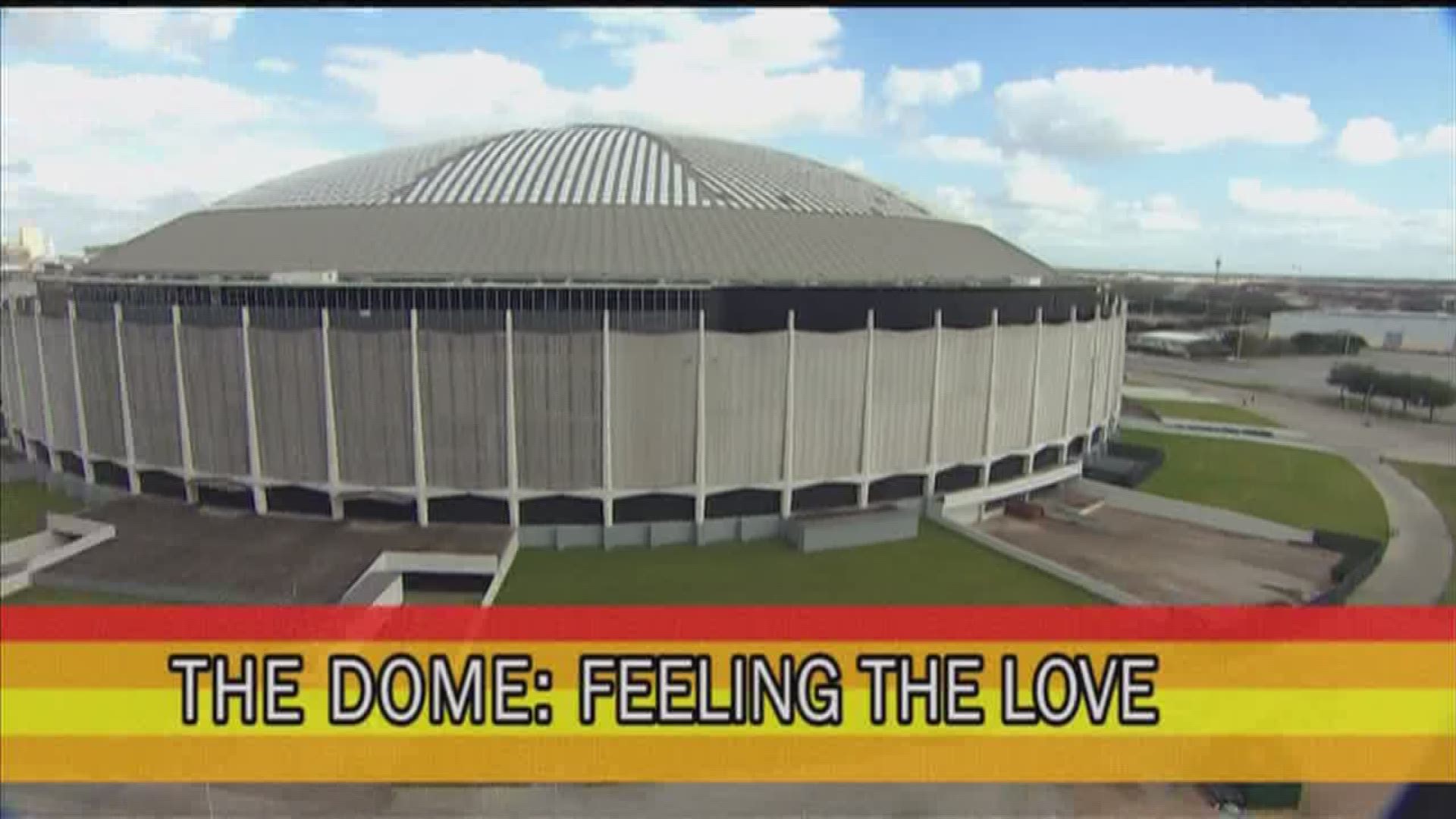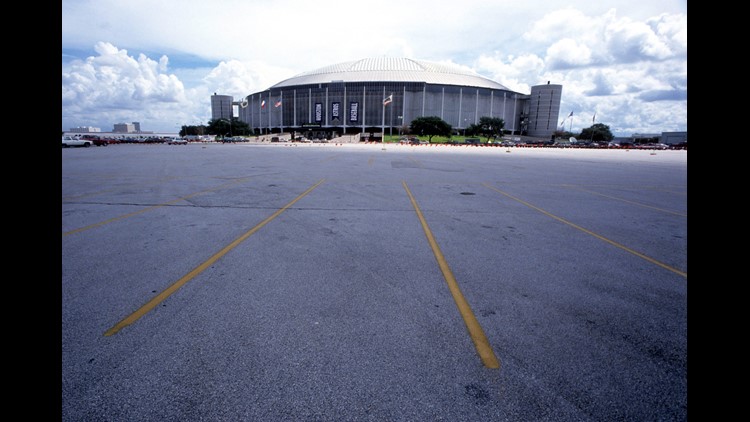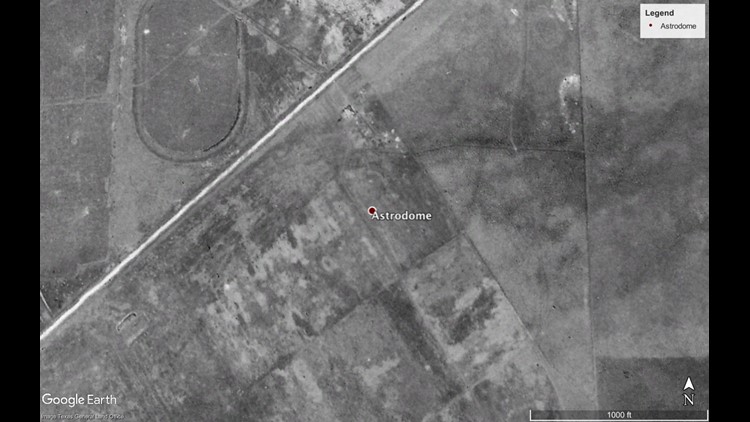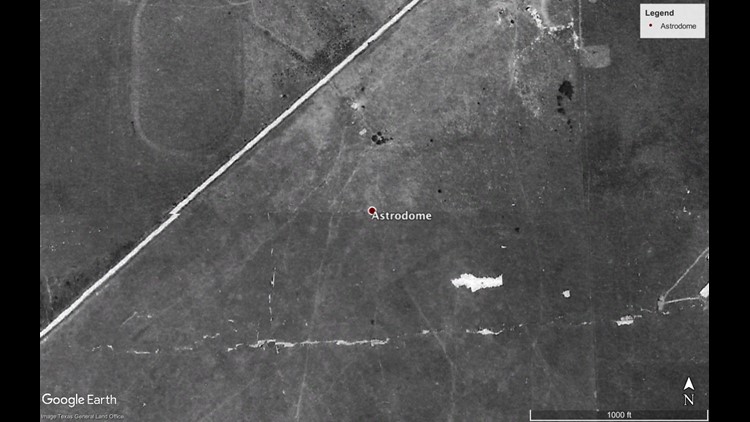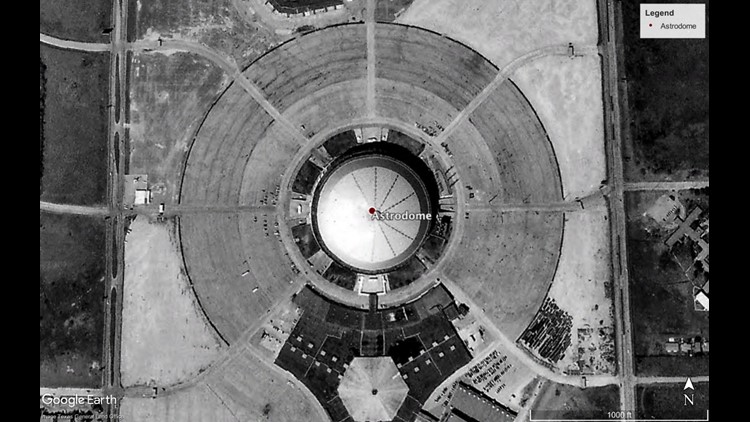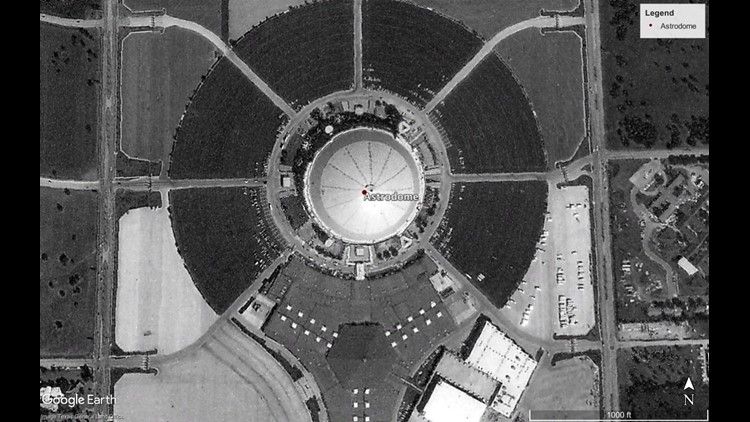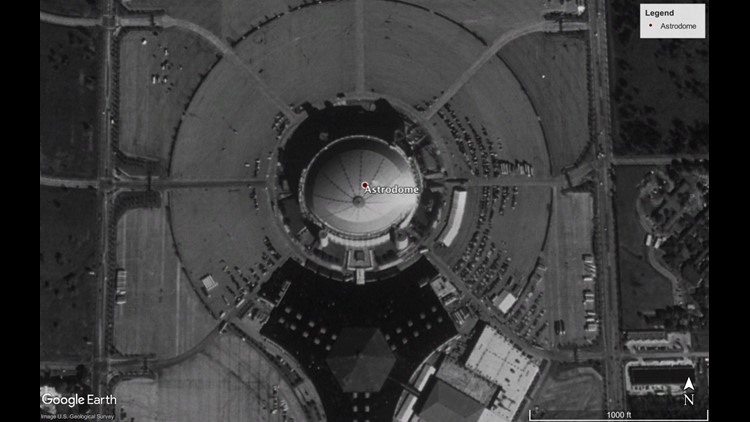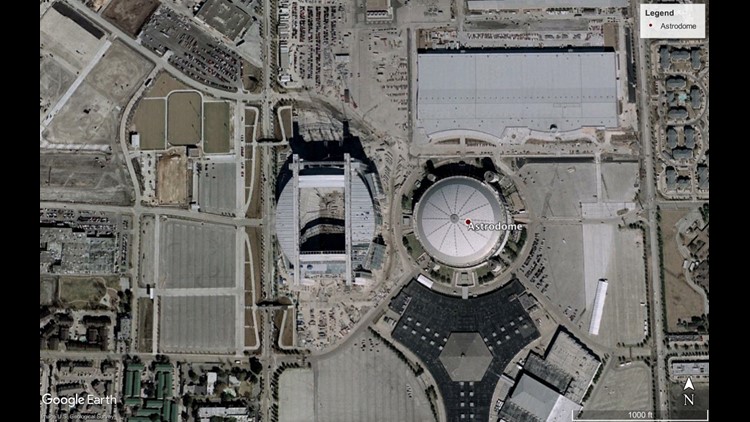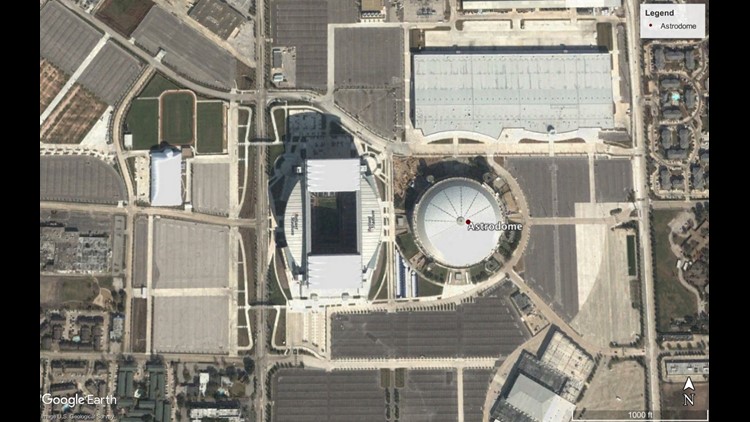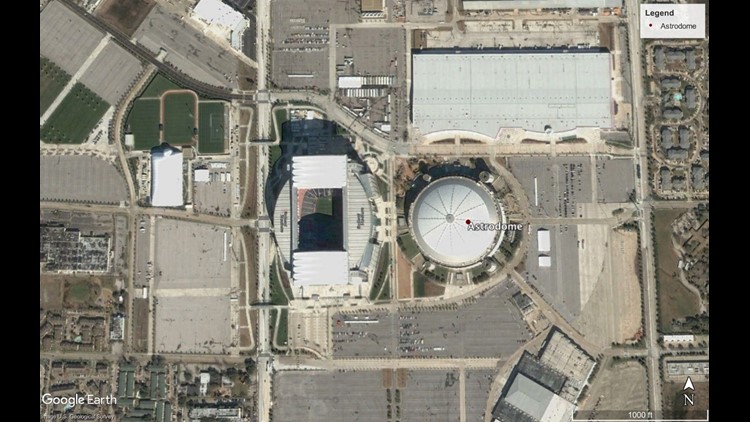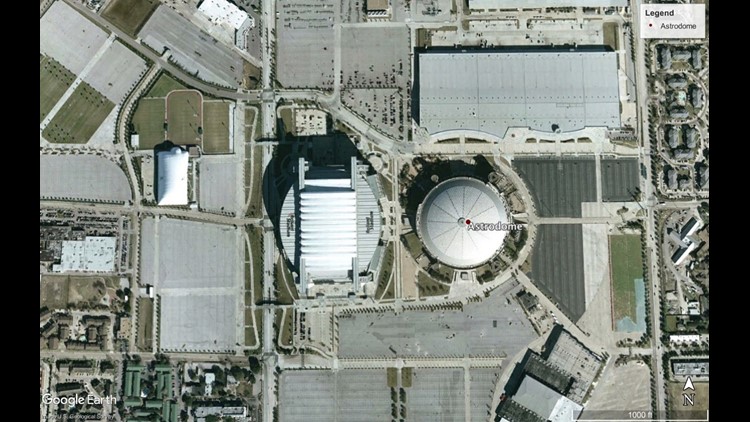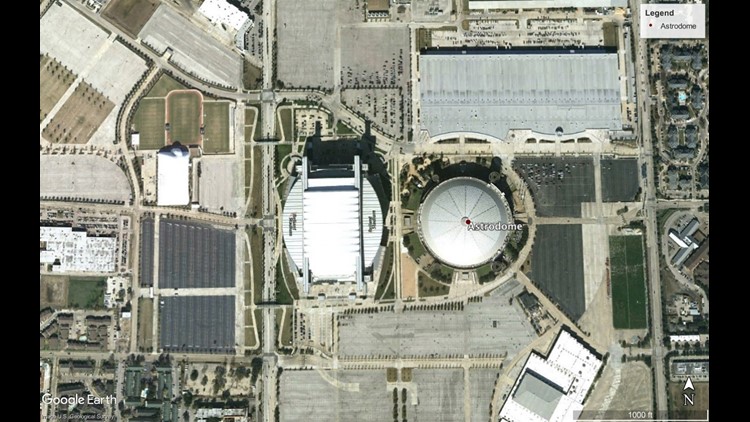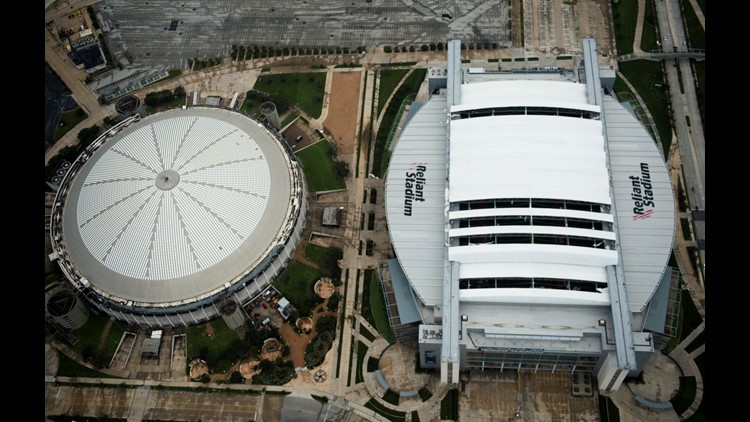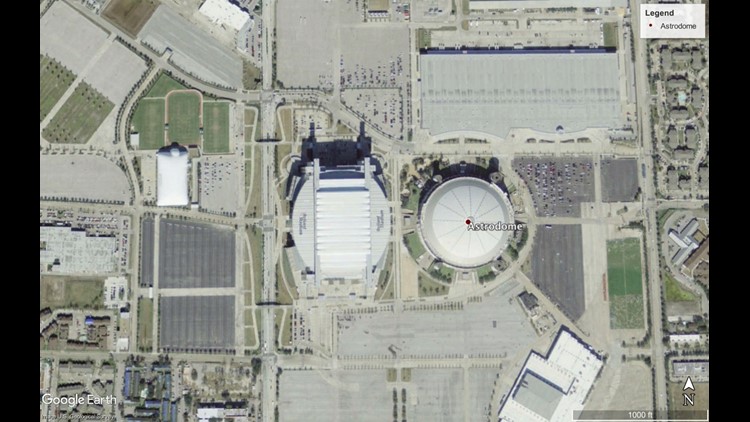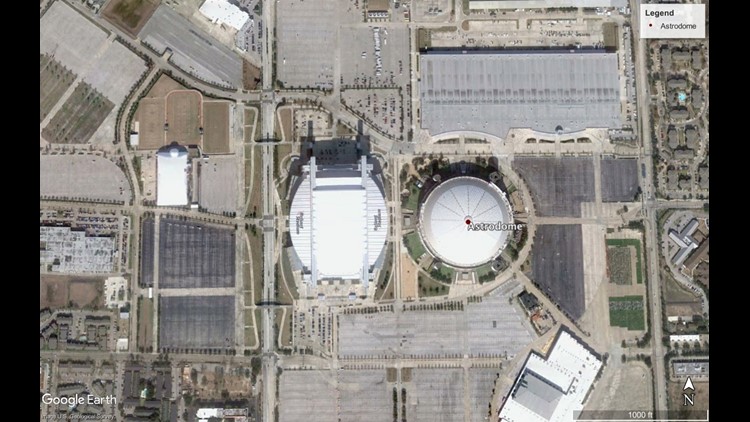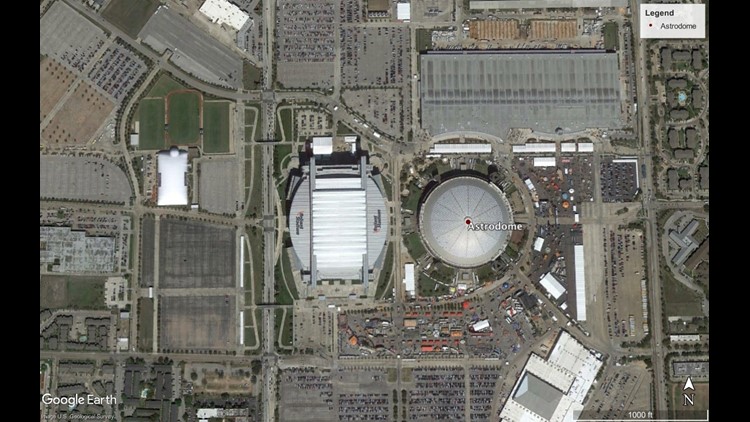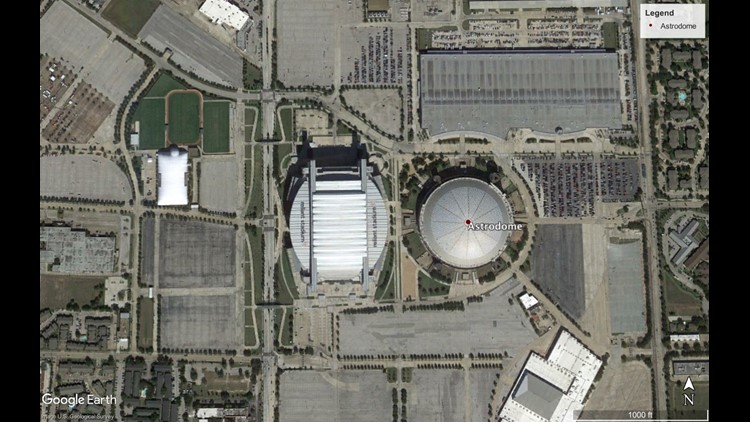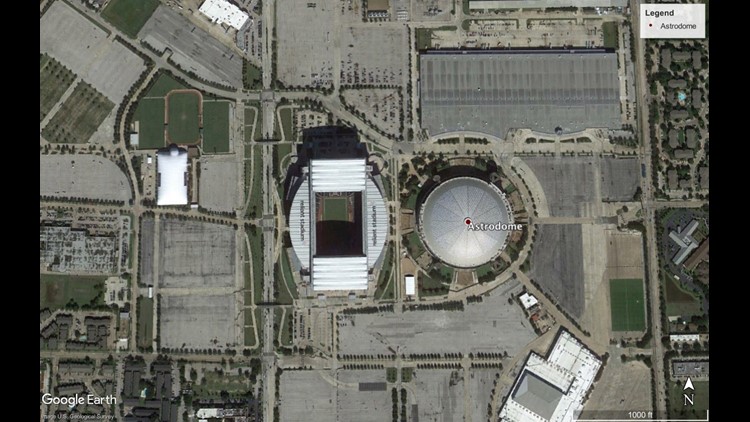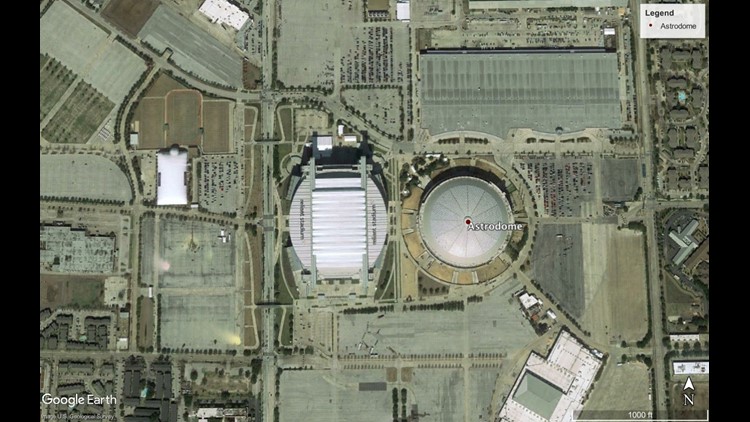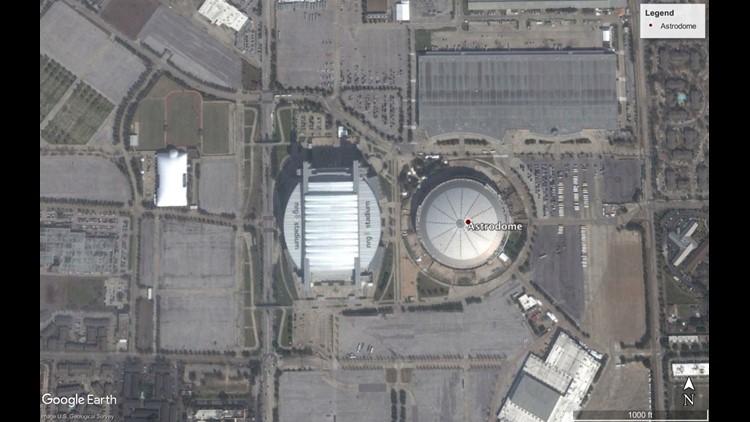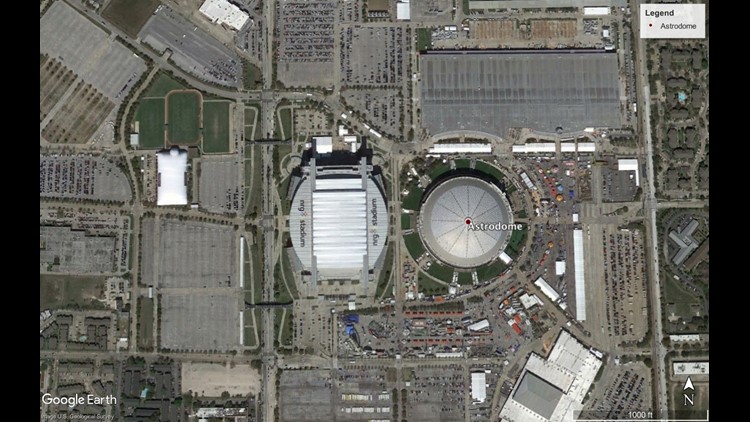The Dome dilemma Houston can't escape
<p>It was once marveled as the Eighth Wonder of the World. But for decades the iconic structure that once breathed so much life into the city has sat lifeless, with a lingering question about its future: What to do with the Astrodome?</p>
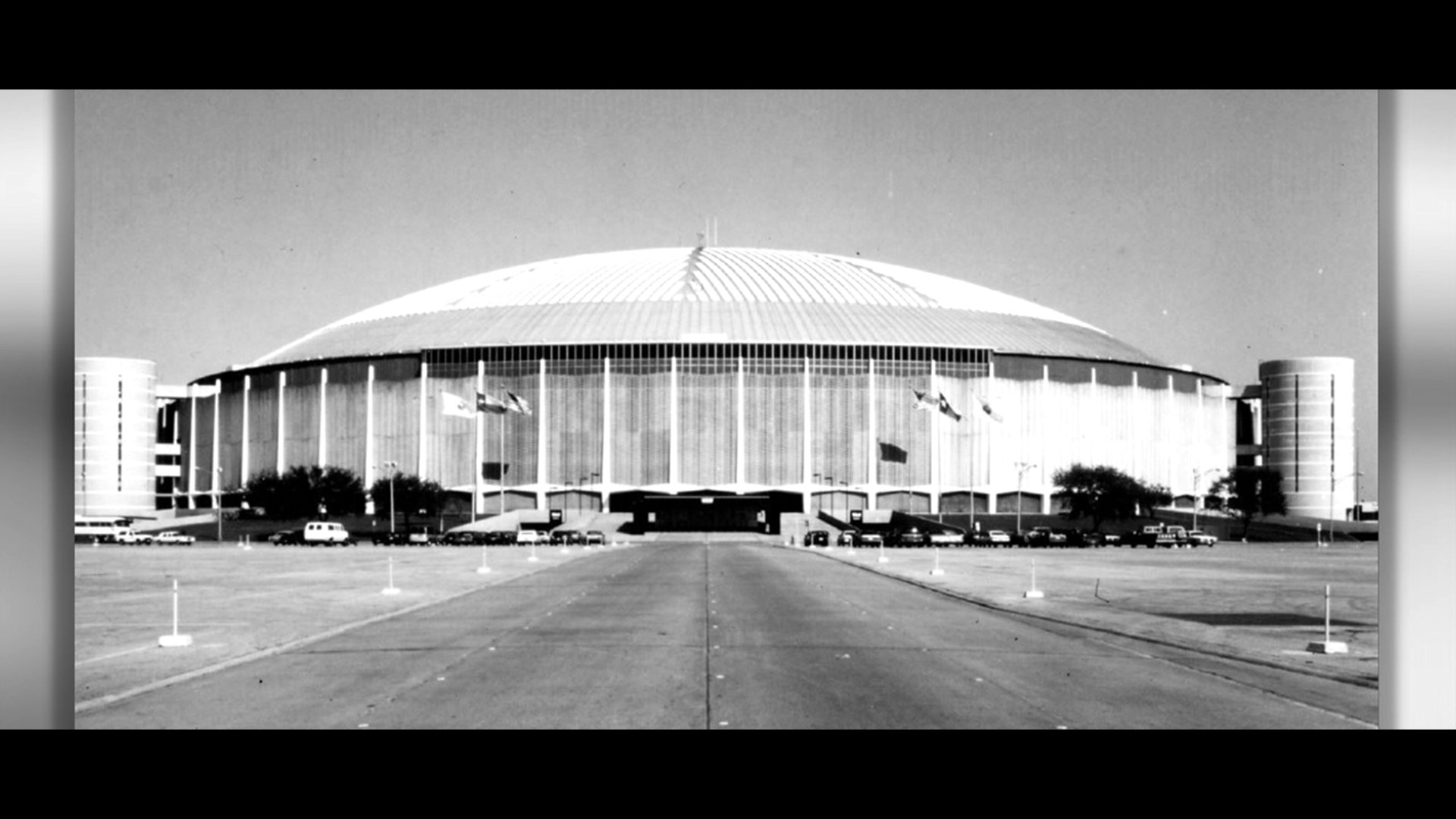
The monumental building’s future has long hung in limbo.
Once marveled as the Eighth Wonder of the World, the massive structure towered across Houston with its giant dome roof—the first of its kind—that looks more like a spaceship than a sports stadium: big enough to fit an 18-story building under its 208-foot roof that stands taller than the Statue of Liberty if you take away her base.
It was showcased to the world on April 9, 1965, fulfilling the dream of Roy Hofheinz, a Houston politician, who envisioned building the world’s first domed stadium, equipped with air-conditioning to keep players and fans out of Houston's hostile summers and wild weather. It held Major League Baseball’s first indoor game, just how Hofheinz envisioned after he convinced MLB owners to bring one of its expansion teams, then known as the Colt .45s, to Houston.
Decades later it sits vacant, engulfed in controversy about its future: What to do with the historic structure that became globally known as the Astrodome?
Mike Acosta (Houston Astros historian): I can’t think of another place you can go in Houston and bring out the emotions of something that happened in this city in a positive or negative way. Even today, people still talk about their experiences in the Astrodome and their favorite moments.
 Ryan Soroka (co-founder of 8th Wonder Brewery): The Astrodome, I think, defines Houston. It was something extraordinary, something no one had ever thought of. I’m sure many people said it couldn’t be done.
Ryan Soroka (co-founder of 8th Wonder Brewery): The Astrodome, I think, defines Houston. It was something extraordinary, something no one had ever thought of. I’m sure many people said it couldn’t be done.
 Dene Hofheinz (Roy Hofheinz’s daughter): More people than you’d ever believe said it couldn’t be done. More people would say nasty things. Many people said, “Your father is crazy.” He never backed down from anything he believed in. It’s almost like he didn’t know how to fail.
Dene Hofheinz (Roy Hofheinz’s daughter): More people than you’d ever believe said it couldn’t be done. More people would say nasty things. Many people said, “Your father is crazy.” He never backed down from anything he believed in. It’s almost like he didn’t know how to fail.
Larry Dierker (former Astros player and manager): After we came back from Spring Training in 1965, we went to the Astrodome. It was all lit up inside and was just breathtaking: all the colors, the different layers of seats, the big scoreboard.
Elvin Bethea (former Oiler defensive end, 1968-1983): Playing in the Astrodome was a thrill. Everybody knows the Astrodome. The games come on and the announcers say, “We’re at the Astrodome, the only one in the world.” It was special, to myself and everyone who paid their $8 ticket back then.
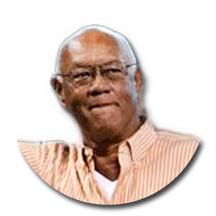 Enos Cabell (former Astros third baseman: 1975-1980, 1984-85): I was traded here in 1975 and I had never seen anything like it—the lights, the brightness. Playing in the Dome, you had an advantage. You come in and it’s loud. When we were good, it was 40,000-something people in there, and in Houston, fans don’t sit down if you have a good team. And so they were up yelling during the games, and you couldn’t hear, you couldn’t think, and the hairs on your arms and your legs would stand up. We loved it there.
Enos Cabell (former Astros third baseman: 1975-1980, 1984-85): I was traded here in 1975 and I had never seen anything like it—the lights, the brightness. Playing in the Dome, you had an advantage. You come in and it’s loud. When we were good, it was 40,000-something people in there, and in Houston, fans don’t sit down if you have a good team. And so they were up yelling during the games, and you couldn’t hear, you couldn’t think, and the hairs on your arms and your legs would stand up. We loved it there.
Dene Hofheinz: This is my father’s baby. It was a dream come true, really. I didn’t like that they kept making us take rain checks and leave Buff Stadium where the Houston Buffaloes played (a former minor league baseball team), because that was time with my dad. So I suggested after one too many rain checks a simple little question: "Why can’t we play baseball inside, because if we played baseball inside, I could spend the whole evening with you."
It was really inspired by the Rome Colosseum, because my dad and mother went over there. He was standing at the Rome Colosseum and he just went, "Something like this needs to happen in Houston." So I guess when I suggested (baseball) should be played indoors, he connected those dots.
Dierker: I pitched the first game there, actually. This was a game for which there was no box score because it was an intrasquad game between the Oklahoma City Triple-A team against the Astros—this was the first year of the Astros.
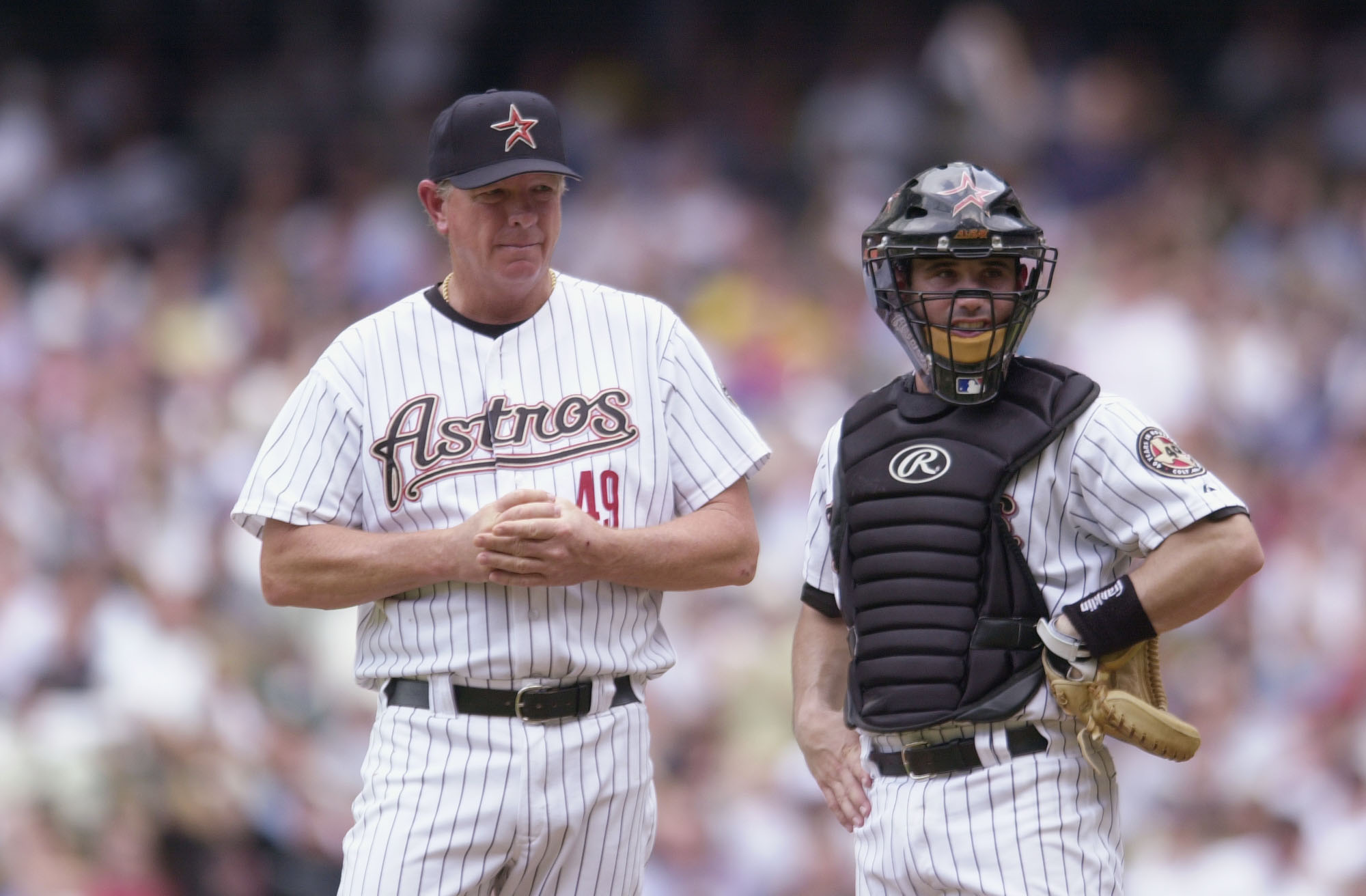
This was when they had problems with the panels and players couldn’t see the balls. I had my fastball working, I was getting lots of popups and fly balls, and nobody could catch them. The balls are dropping and the runners are running around bases, and I’m standing there thinking, I’m an 18-year-old kid, “I hope they don’t send me down for this.”
Cabell: I really adjusted my hitting to that ballpark, because back then you had to hit it all the way to the stands. I hit three balls one game, three doubles off the left-field wall, and it’s 380 (feet). I should have hit three home runs.
Dierker: We had a psychological advantage. I remember one time Ed Kranepool with the (New York) Mets said it wasn’t fair because they turned the air-conditioners on where they were blowing in when the visitor teams hit and blowing out when we hit, which was totally ridiculous. But those were the things that got in people’s heads.
WATCH: The history of the Astrodome
The Astrodome was more than a stadium for the Astros and Oilers.
In January 1968, it hosted the “Game of the Century”, where the University of Houston men’s basketball team stunned No. 1-ranked UCLA, 71-69, snapping the Bruins 47-game winning streak. Judy Garland, along with her opening act The Supremes, performed the first concert at the Dome in December 1965. In November 1966, boxing great Muhammad Ali knocked out Cleveland “Big Cat” Williams to retain his heavyweight title.
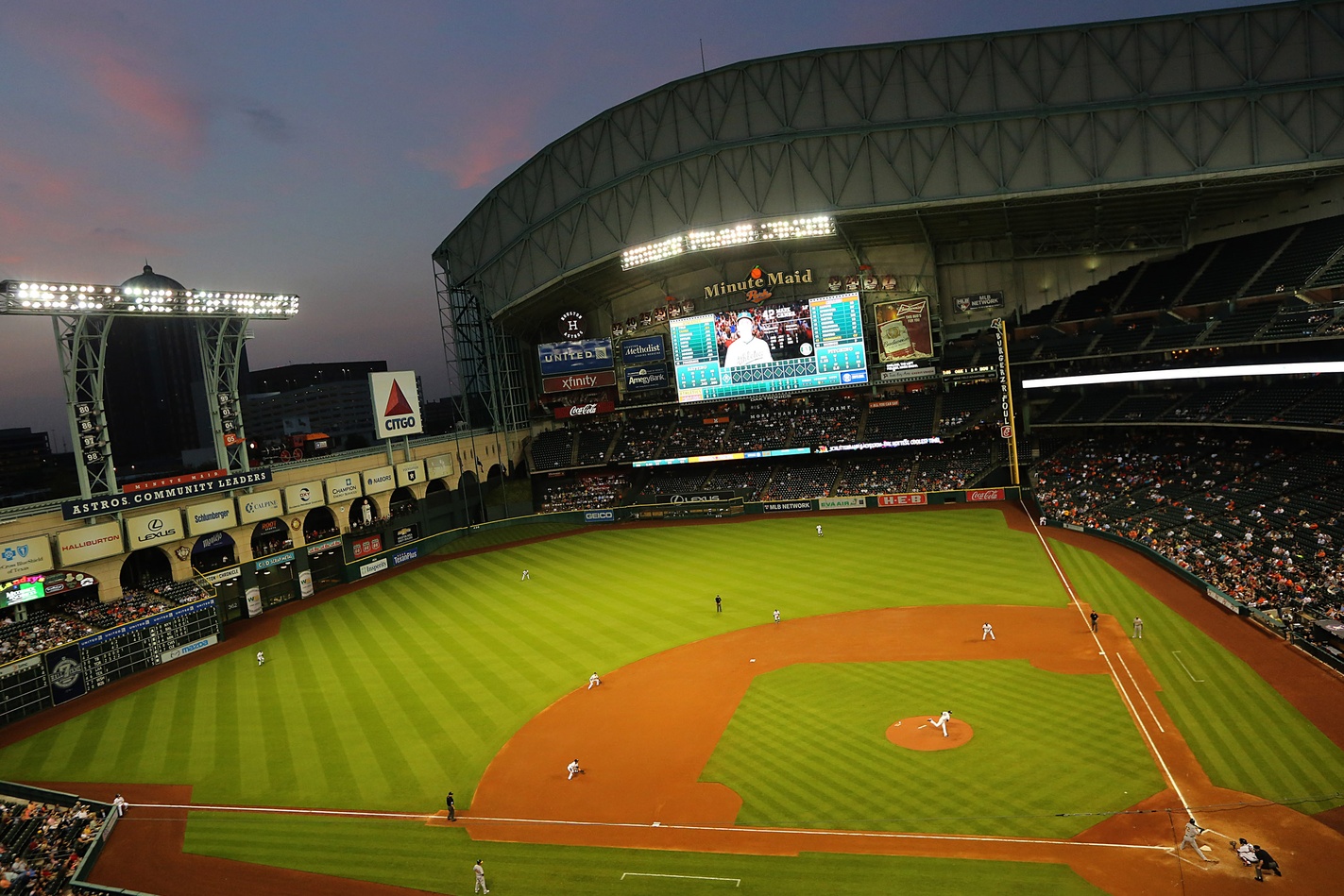
But glory days end. Memories fade. Historic buildings decay.
By the mid-1990s, Oilers owner Bud Adams demanded city and county leaders build his team a new stadium or he was going to take the team and leave town. When leaders refused, Adams bolted to Nashville, Tenn., with his team that would later take on a new name that cut its Houston ties, the Tennessee Titans.
Three years later, the Houston Astros opened their new stadium, Minute Maid Park (then Enron Field), eight miles north in downtown Houston. The Dome’s last rodeo—literally—was 2002. A year later, the Houston Livestock Show and Rodeo moved to NRG Stadium.
Now, more than a decade later, the once historic monument sits lifeless in an entertainment park surrounded by newer and vastly improved structures still centered around the never-ending argument: What’s next? There are those who want to demolish the damn thing and move on. There are others who want to create something—quite frankly, anything—and preserve the decades’ worth of memories.
Ed Emmett (Harris County judge): It’s amazing how many people from really all over the world have expressed interest in this building and what can be done with it. We’ve had lots of ideas, and I mean lots of ideas—from an indoor ski park, a theme park. You name it, we’ve seen it. But they all lacked one thing: money.
James Glassman (Houstorian): The Dome is such an important building for all Houstonians, whether you’re a sports fan or not.
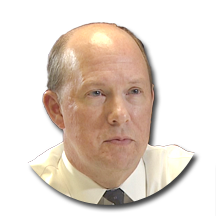 Bill Bishop (KHOU 11 managing editor): People knew Houston because of the Astrodome. It should always be here, because that’s what people think of when they think of Houston: The Eighth Wonder of the World.
Bill Bishop (KHOU 11 managing editor): People knew Houston because of the Astrodome. It should always be here, because that’s what people think of when they think of Houston: The Eighth Wonder of the World.
Jon Feiwell (Houston sports fan): A lot of things were great in their heyday, but time marches on and they’re no longer appropriate for their purpose they once served. I truly believe that if New York City can tear down Yankee Stadium, Detroit can tear down Tiger Stadium, Chicago can get rid of the old Comiskey Park, then Houston can do the same with the Astrodome.
Billy Spain (Houston sports fan): They talked about tearing it down and the first thing I thought was, “You’d stick a knife in my heart.”
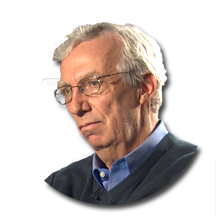 Steven Craig (University of Houston economics professor): To have the first domed stadium was so cool for Houston. But now if you look in the Astrodome, it’s a terrible stadium, it’s worn out. If I was the county commissioner, I’d tear it down.
Steven Craig (University of Houston economics professor): To have the first domed stadium was so cool for Houston. But now if you look in the Astrodome, it’s a terrible stadium, it’s worn out. If I was the county commissioner, I’d tear it down.
Emmett: Not only is it an icon, not only do a lot of people have emotional attachments to it, but it’s a totally useable building. Why on earth would we spend millions of dollars to tear it down, after which you have nothing, instead of figuring out what’s the best way to put this asset back to use so that people can still enjoy it?
There’s no question in my mind people have really rallied around the idea of putting the Dome to use.
Photos: Astrodome through the years
Photos: Astrodome through the years
In September, Emmett and the Harris County Commissioners Court breathed some life back into the Dome.
The court allocated $105 million to renovate the Dome and turn it into a public event space that would feature roughly 240,000 square feet of park and event space, as well as 550,000 square feet of hospitality and retail space. The plan would also raise the ground floor to street level and add a 1,400-space parking garage below.
On Friday, the Texas Historical Commission unanimously voted to name the Astrodome a state antiquities landmark. The designation "recognizes its historical significants and providing it with important legal protections."
For another day, the Astrodome will live on.
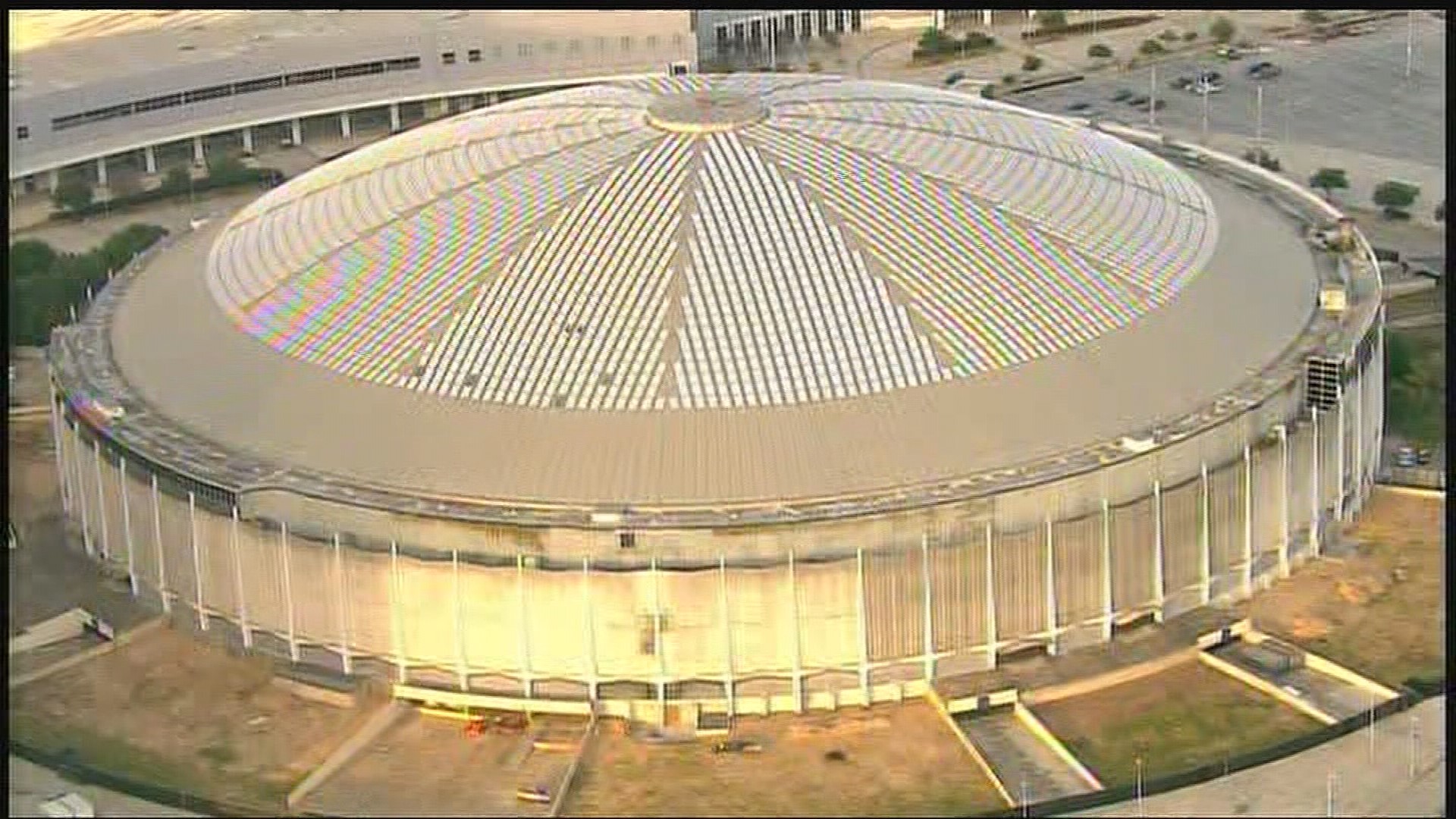
Acosta: Why does the Eiffel Tower mean so much to Paris? Because it’s a structure, it’s a gathering place, because it’s an iconic destination. The Astrodome is one of the single-greatest things to happen in this city.
Spain: It’s like the pyramids in Egypt. We had the very first enclosed stadium, and we’re proud of that fact. And that pride lives on, even though we’re not playing in it anymore.
Soroka: I have a lot of great memories there—sporting events, the rodeo, concerts, high school games—that I’ll cherish for the rest of my life.
Bethea: I hope they don’t ever tear it down, not in my lifetime. Maybe it'll be around another 130 years.
Bishop: To me, my heart’s there. If it were at the end for me, scatter my ashes over the Astrodome.
Follow Josh Chapin and Matt Keyser on Twitter.

